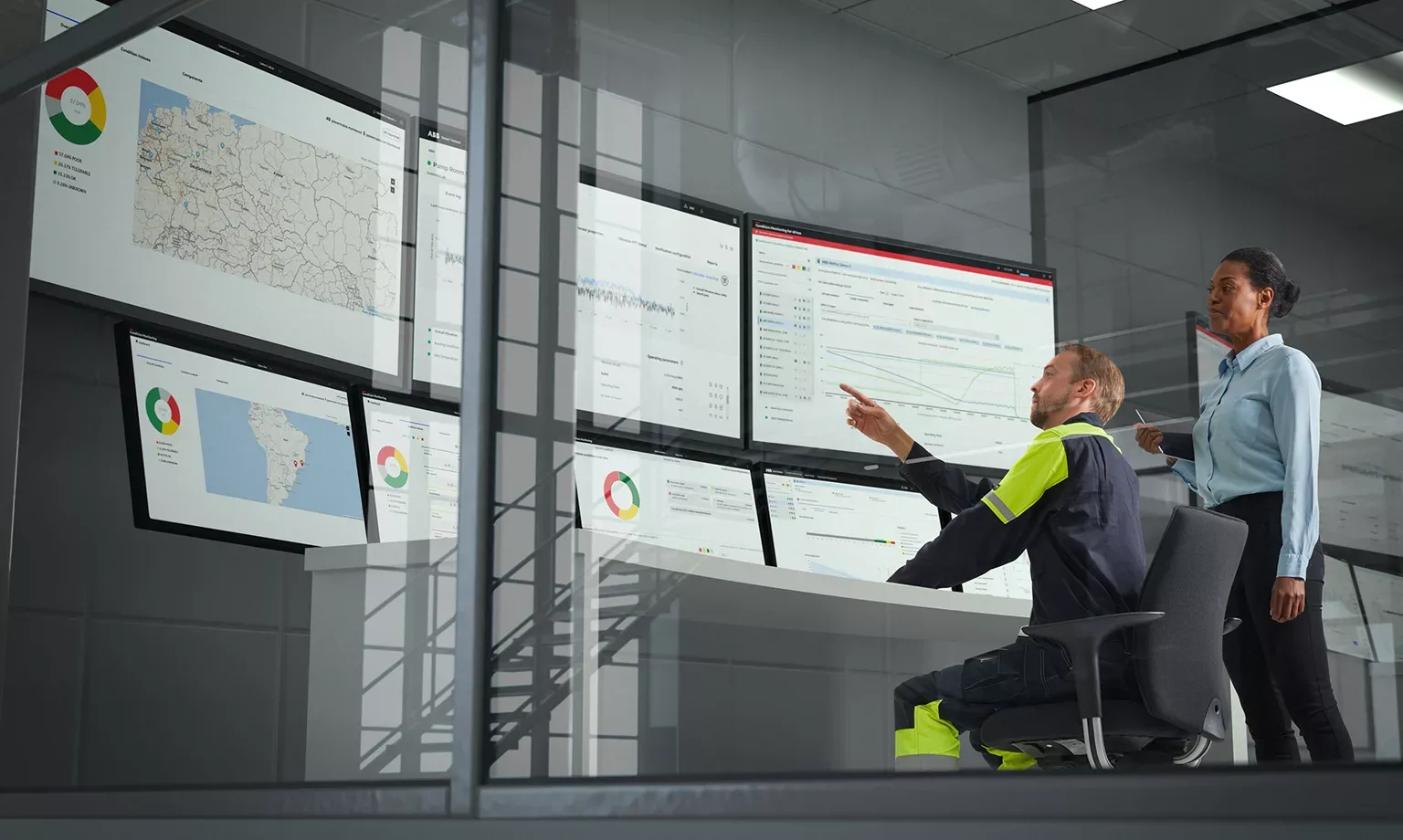Kabeer Sewpersad, Sales Manager for Digital Solutions in Process Industries at ABB South Africa, discusses how digital solutions aid improvement and shape the future of many industries.
Finding better ways to manage energy and manufacturing resources is a key concern for businesses in Africa right now. However, achieving this can be a complex challenge. At ABB, we’re seeing first-hand how digital solutions are empowering businesses in African countries to not only unlock improvements in energy management but also enhance their operational excellence and process performance.
DIGITAL IN AFRICA: INDUSTRY ADOPTIONS
We’re currently seeing some interesting trends relating to how and why companies in Africa are adopting digital solutions. Currently, we’re providing a great amount of support to cement, pulp and paper, and mining companies. Others taking a strong interest in our digital solutions to drive forward sustainability, process performance, and operational excellence goals are food and beverage businesses. While they have a strong focus on traceability from raw materials to finished goods and the related supply chain tracking, businesses in the mining industry are concentrating more on their underground fleet – and how to decarbonise, electrify and track their locations, aiming for near real-time optimisation of their production plans.
Africa’s mining sector is showing a lot of interest in our short-interval control solutions. This software allows companies to convert and then track their long-term production schedule into smaller-scale monthly, weekly, and daily plans. The system can auto-reschedule tasks as suggestions to meet the mine production targets, based on the constraints being experienced. We’re experiencing a strong demand from the mining and pulp and paper sectors for advanced process control solutions, through which we provide process optimisation to help reduce raw material consumption, reduce energy consumption, lower process variability, and improve production throughput. Our work with Africa’s cement industry is highlighting the need for digital solutions to optimise processes and reduce materials used for manufacturing while also improving quality.
FROM SILO TO SINGLE VIEWPOINT
Organisational silos can stand in the way of critical operational and performance management improvements. Companies often rely on and interact with multiple systems, but lack a single, unified view of what is happening across their organisation. Additionally, they lack a common way of working across their systems. These issues can lead to increased wastage, reduced efficiency, and a knock-on effect on performance and profitability.
To counter this, we’re implementing operational excellence solutions across businesses in Southern Africa, which collects, contextualises, and converts data into actionable insights. This enables industries to improve operations, optimise assets, streamline processes, and increase safety and sustainability.
Beyond moving from fragmented silos to data unification that drives operational excellence insights and productivity improvements, businesses then have the option of using our higher-level ABB AbilityTM Genix platform to gain additional analytical insights and leverage AI machine learning to progress with their goals even further.

CASE STUDY: CEMENT
A recent example of digital solutions helping a company to overcome system silos is our work with a leading Southern African cement company. After delivering an operational excellence solution for three of their sites in Zimbabwe, we are now implementing this at seven of their sites in South Africa. We consolidate information from various manufacturing and business systems into one end-to-end system, ABB AbilityTM Knowledge Manager, leveraging our extensive domain knowledge in the cement, minerals, and mining industry. Knowledge Manager has a long track record, an install base dating as far back as three decades, deployed at multiple global customer sites. The solution helped break down organisational silos for this customer, supporting unified decision-making and better collaboration across different business functions.
MAXIMISING ASSET PERFORMANCE
Improving asset performance management is vital in the journey towards the maximum performance and availability of plant assets, which directly impacts reliability, profitability, and minimising risk. We’re working with many businesses in Africa, particularly those in the pulp and paper industries, who have a keen interest in understanding how they can maximise the performance of their assets and better manage their maintenance schedules with those assets. These companies are leveraging our asset performance management solutions to address complex challenges. Scheduled maintenance on one end of the scale leads to over-maintenance, resulting in excessive, unnecessary costs, or at the other end, under-maintenance resulting in breakdowns, downtime, and costly reactive maintenance. By gaining real-time insights into the status and performance of assets, businesses can more easily avoid breakdowns, downtime, and the associated financial impact.
ACCELERATING BUSINESS PERFORMANCE IN AFRICA
These are exciting times for African countries and the companies operating within them. Digital innovation is playing a central role in this and helping to shape a better future for businesses in Africa, not only by enabling them to unlock improvements in energy and asset management, but also by empowering them to respond to new opportunities. By collaborating with trusted partners with proven experience in Africa, industries can reap the rewards and sustained tangible benefits of digital innovation.



























